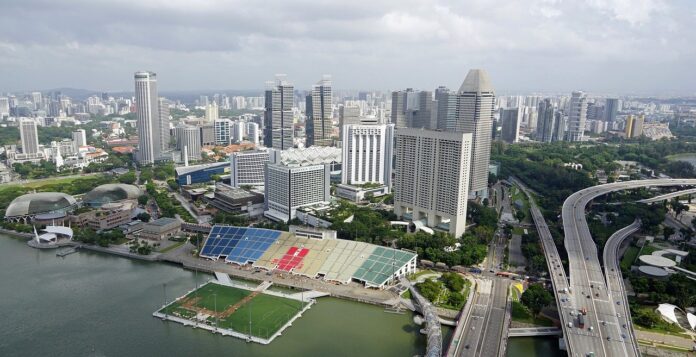While in general, the cities dwell in just 2% of the overall earth’s land space, it inhibits in excess of half of the global populace. As per the United Nations data, within the year 2050, the overall universal rate of urbanization will upsurge from current 54% to 66%.
For an illustration: – The swiftest pace at which ASEAN is getting urbanized with its dependency on the core cities as the core source of expansion is all set to upsurge within the forthcoming decade. As there will be a mass shifting of public to be on realm of city’s brighter lights, it will bring with its tremendous pressure that will have definitive impact on core public services.
The governments role is more crucial as they need to pitch in at right time for preparation of our cities that we dwell in secured, sustainable as well as better efficient. Cities tend to be smarter, however, their build up of the smarter cities also is powered and is directly proportionate to well-being of the public who live there, as well as continued by innovative technologies.
Singapore is progressively turning on as a prospective launchpad for global start-ups due to its empowering commercial innovation ecosystem as well as tactical location at the temperament of the pulsating Asia-Pacific territory.
Smarter nations are derived from smarter cities
For the second consecutive year in running, Singapore has surpassed the Smart City Index which is assembled by the Institute for Management Development and measures residents’ insights of the impression that technology has created on their lives.
The concept of what establishes smart cities reflects the excellence of life more roughly across several ranges, such as health, the environment, safety, governance and education, however the progress is principally technology-led.
Singapore has been determined in its strategy to become a “smart nation”, charming enterprises watching for test-bedding prospects in an operative and caring environment.
Singapore freshly unlocked an industry-led lab to permit native technology start-ups, system integrators as well as universal corporate enterprises to co-create resolutions for building up smarter cities.
With multinational firms and government agencies supporting the technology enterprises, from innovation labs for smart cities solutions to medical technology ecosystems, the island has become a one-stop launching pad for start-up innovators.
Diversified high-progress enterprises from the Nordic region, Korea and the UK offered their ideas for Smart Cities during TechInnovation 2020, run by IPI, an innovation catalytic agent and subordinate of Enterprise Singapore.
They projected a treasure of prospects in the search for budding partners including: drones nursing road surfaces, remote-learning platforms for children, digital smart city developers, tools to defend frontline health workers, data-powered solutions for the conduct of chronic illness and instinctive city-mapping.
Make an effort for eradication of health problems amid swifter urbanization module
Boundless importance was placed upon health and medical technology during TechInnovation 2020. The nation’s urbane healthcare system emphasizes Singapore’s reasonable benefit in the territory and it is appealing new players with appearances from the UK, Korea and Nordic nations watching for collaborators in this zone.
The progress of health and medical technology has been reserved as a significant zone by the Singapore government as the arena has huge-expansion potential in ASEAN. The nation already lines numerous native headquarters for medical technology establishments as well as some of the global pharmaceutical majors.
Meanwhile, Singapore’s suppleness during the COVID-19 pandemic has reinforced its appeal in this zone. The nation has managed to uphold one of the world’s lowest fatality rates from the deadliest pandemic via an active contact-tracing, an excellent healthcare system and active public health infrastructures for the general public.
The city-state’s capability to foster innovation has permitted native firms to progress transformative technology during the pandemic. Cell ID Pte. Ltd., a Singapore-incorporated med-tech establishment, has freshly established a palm-sized portable genetic testing-kit to distinguish if a person has COVID-19.
The Quiz PCR Biochip utilizes the biotechnology to accomplish two tests at a time, outside of the laboratory, with optimistic outcomes confirmed within minutes. Widespread testing has significantly permitted administrations to keep tabs on the virus consenting it to hold it spread; bringing with it a degree of assurance and a self-motivating part of normal life. A testing-kit that is portable, precise and can affluence the burden on troubled labs, could be a game-changer -predominantly as nations look to open their skies and land-borders.
The organization and conduct of chronic ailments are also high on the agenda for tech innovators and governments. With the massive pecuniary progress of Asia – we will also witness the evolution of lifestyle diseases such as diabetes.
In 2019, approximately 28 million people had diabetes in south-east Asia with a probable 46 million to have the disease in 2045, forming a mammoth burden on public healthcare systems. Brighter AB, a Nordic company, has established a unified diabetes care device with a mobile-connected service for real-time nursing and treating diabetes giving public and doctors added control of the ailment. This is just one of the countless innovations showcased at this year’s TechInnovation.






